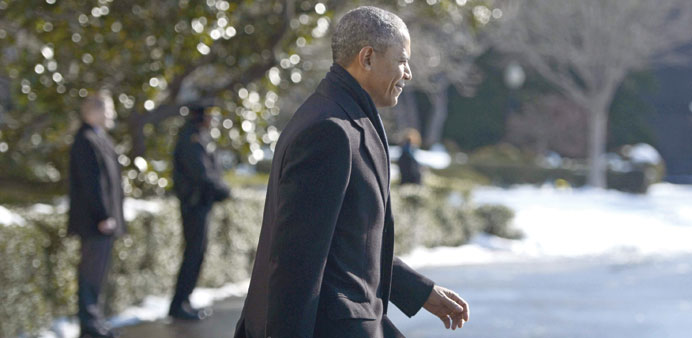|
US President Barack Obama’s apparent tendency to designate ambassadors based on how much money they contributed to his campaign, rather than on their ability to perform well on such delicate jobs, has provoked renewed debate over an age-old issue. |
The admission by Noah Mamet, nominee to be the US ambassador to Argentina, that he had never visited the South American country, even though he had by then been the nominee for more than six months, was hardly the only such diplomatic blunder.
Robert Barber, who raised more than $1.6mn for Obama and the nominee as ambassador to Iceland, said he also had never visited the Nordic nation.
In January, George Tsunis, who aspires to become US ambassador in Oslo, showed he did not even know that Norway is a monarchy as he appeared before the Senate’s Foreign Relations Committee. He spoke of a “parliamentary government” and of the European country’s “president” instead of its prime minister, and he did not know that the populist Progress Party holds several Norwegian ministries.
“I stand corrected,” the nervous Tsunis needed to say time and again, as Republican Senator John McCain called his mistakes with growing annoyance.
Tsunis too is yet to set foot in the country where he plans to live as US ambassador.
And Colleen Bell, a soap opera producer nominated to represent the US in Hungary and another big fundraiser, stumbled through her testimony, showing little awareness of the country’s strategic importance for the US, according to the Washington Post.
“I have no more questions for this incredibly highly-qualified group of nominees,” McCain sarcastically said.
According to media reports, Mamet raised about $1mn for Obama’s presidential campaigns in 2008 and 2012. Tsunis too has been a generous donor for the Democratic Party.
In the US, it is usual for some big donors or fundraisers from presidential campaigns to be rewarded with an ambassador’s position. The same thing happened with the new US ambassador to Spain, James Costos, a Hollywood high executive and also a top fundraiser for Obama’s re-election in 2012.
For a long time, there were also rumours that the top prize at the embassies in London or Tokyo would go to glamorous Obama fundraiser Anna Wintour, editor-in-chief of Vogue magazine, who appears however to have opted for staying at the fashion magazine in New York instead.
The New York Times reported last year that people who had donated or raised over $1mn were demanding positions.
“How much does it cost to become an ambassador, to be named ambassador, in the Obama Administration?” one reporter asked last week at the daily State Department press briefing, in the wake of Mamet’s blunder.
“We don’t name ambassadors from the State Department. The White House names ambassadors,” spokeswoman Jen Psaki said.
Psaki stressed that the current government sticks to the 70-30% rule, with 70% career diplomats and 30% “civil society” appointments - political positions, that is.
But figures from the American Foreign Service Associated quoted by the Washington Post last week showed that 37% of the ambassadorships filled during Obama’s five-year tenure were political appointments; and in the year since his second term began in 2013, the rate was 53% political appointments.
Lately, Obama has been unsuccessful even with veteran nominees.
“I’m no real expert on China,” former senator Max Baucus said as he sought ratification as ambassador to Beijing.
Psaki stressed that the newly nominated ambassadors should be given the benefit of the doubt.
“Judging somebody’s effectiveness or what role they’ll play or how strong an ambassador you’ll be you can’t do until they’ve spent some time working in the job in the country,” Psaki stressed.
One reporter was quick to remind her that, according to a State Department survey, Obama’s “political” ambassadors include the mission leader in the Bahamas, who took 270 personal leave days in a total of 18 months on the job, while the ambassador to Belgium is being investigated for soliciting prostitutes at a park near his home. - DPA

